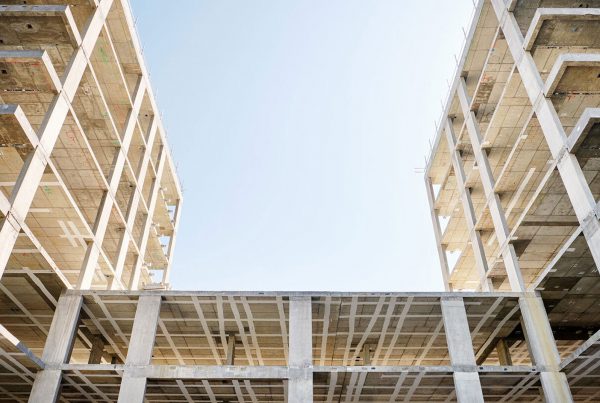




Legal support to homeowners, builders & construction companies.
Competitive & flexible pricing 20-minute free initial consult.
Practical legal advice you can
understand.
Residential building work in NSW is primarily regulated under the Home Building Act 1989 NSW and other legislation such as the relatively new Design and Building Practitioners Act 2020. The Home Building Act 1989 is considered consumer protection legislation which means it is designed especially to protect the rights of a particular consumer group, in this case homeowners. If you are a contractor doing residential building work, you have to comply with the Act’s various requirements, including statutory warranties that cannot be excluded by contract.
At One Law, we advise a range of builders and other trade contractors on their statutory obligations, in particular when the reasonable market cost and labour of the works are above the prescribed statutory limit ($20,000). Determining whether the Home Building Act applies is a multi-step inquiry including closely examining the definition of residential building work. Sometimes we find that the Act does not apply because the works carried out by the contractor falls within the exclusionary definition of residential building work.
Depending on the circumstances, this can be beneficial for you. For example, installation of flooring in a unit is not residential building work and excluded under the Act as long as it is not done in connection with any other work.
We strongly recommend that before entering into a contract with a homeowner, in particular if the value of the works are above $20,000 or likely to be above this amount, you speak to us regarding your contract and other arrangements. We can advise you on your contract, and if appropriate, recommend provisions to be put in place protect you against the risk of claims, actions and lawsuits.
Our building and construction law services include advice and recommendations on building contracts, advice, negotiation and resolution of building and strata disputes.
We offer competitive and flexible pricing to ensure you get the legal advice you need. We’re transparent about our fees so you’re fully informed of your costs upfront. If you’d like to get in touch with one of our building and construction lawyers, give us a call or complete the contact form on this page. We offer a 20-minute obligation-free phone consult. So get in touch and experience the One Law difference.
$2.2m
Excepteur sint occaecat cupidatat non proident, sunt in culpa qui officia deserunt mollit anim id est nisi ut aliquip ex ea commodo consequat laborum.
$900k
Excepteur sint occaecat cupidatat non proident, sunt in culpa qui officia deserunt mollit anim id est nisi ut aliquip ex ea commodo consequat laborum.
All residential building work in New South Wales falls under the Home Building Act 1989 (NSW).
The Act provides consumer protection. It also provides the framework:
Residential building work is any work on a residential house involving: construction of a house, or renovation and repairs to a house. This includes renovating kitchens, bathrooms or landscaping.
Certain trades fall within the definition of residential building work, including:
Residential building work doesn’t include renovations or repairs costing $5,000 or less. And that total cost must include both materials used and labour. There is an exception to this rule called Specialist Work.
he law consider certain categories of work to be Specialist Work. And this is regardless of the value of that work. It may be $5,000 worth or $50,000.
These certain categories of work fall within the definition of residential building work. Some examples include:
Under the Home Building Act 1989 (NSW), contractors need a license to work.
So if you’re carrying out residential building work over $5,000 or Specialist Work, you need a license.
The Department of Fair Trading issues licenses in New South Wales. It’s an offence to do residential building work over $5,000 or Specialist Work without a license.
You must have a written contract with a homeowner if the value of the work is more than $5,000. This is a Small Contract.
Where the value of the work is over $20,000, you must have a more substantial contract. The legislation refers to this as ‘other than small job’s.
Housing Industry Australia have standard form contracts for builders to use. Fair Trading also publishes contracts that you can download and use.
We review contracts for more substantial work to:
You’ll need insurance for any work you do over $20,000. This used to be Home Warranty Insurance. It’s now under the Home Building Compensation Fund.
The purpose of insurance is to compensate a home owner if a builder:
There are benefits for builders having insurance. It’s one of the most important things you can have. If you’re not insured, you’re not entitled to receive any money from the homeowner, not even as a deposit. You’re required to show a homeowner a certificate of insurance before you start work.
There’s another important benefit of having insurance as a builder. If a homeowner fails to make progress payments, you can only chase payment if you have insurance. This is something you can’t do if you don’t have any insurance.
A major defect is a building defect to a major element that causes (or is likely to cause) either:
(a) The inability to occupy or use the building (or part of it) for its intended purpose
(b) The destruction of the building, or part of it, or
(c) A threat of collapse of the building, or part of it
A minor defect are smaller defects that can affect how a building looks or functions. But minor defects don’t compromise the integrity of the building structure.
Under the Home Building Act 1989 (NSW), owners have:
Practical Completion is when the builder completes the work outlined in the contract. This is except for any omissions or defects that don’t prevent a homeowner from using the home or renovations.
This is where one of our building and construction lawyers comes in to help builders.
We’ve found that there are many occasions where builders can defend defect claims. The defence tends to fall under one of the following categories:
At One Law, we understand that every case is different, and we take the time to get to know your situation. We are your local lawyers with access to resources in all states, so you know your case is in good hands no matter where you are in Australia. Meet our Business and Commercial Law Specialists.



Call us on our advice line 1800 663 529 or leave your details and we’ll call you.